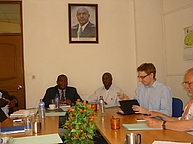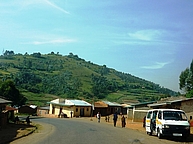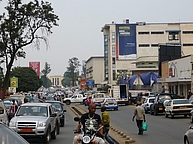Burundi

| Title | Support to Decentralisation and Fight against Poverty- Promotion of Decentralization and Local Economic Development (Phase I, II & III) |
| Type of project | Good Governance - Private Sector Development |
| Client | Ministry for Planning and Local Development / Ministry of the Interior |
| Origin of funding | Deutsche Gesellschaft für Internationale Zusammenarbeit (GIZ) GmbH, Eschborn,Germany |
| Duration | Phase I : 06/2011 - 03/2014 Phase II: 04/2014 - 03/2017 Phase III: 04/2017 - 12/2019 |
Ten years after the end of the civil war in Burundi, decentralisation is now a crucial element of political reform. The participation of citizens in local development is strengthened through the transfer of decision-making processes from central government to municipal level.
The programme (Programme d'Appui à la Décentralisation et à la Lutte contre la Pauvreté - ADLP) is divided into three main components:
- Support of decentralization process and the implementation of the national decentralization strategy.
- Support of Local governance to improve municipal services and provide participation and involvement of local economy
- Local economic development in the core area of Gitega to improve the framework and harmonize conditions for local economic and labor oriented development and poverty reduction
The programme advises local authorities in the provinces of Gitega and Mwaro in the centre of the country. The aim is to involve the population more effectively in local decisions and planning. To this end, the project helps local authorities to become more accountable to their citizens, with a particular focus on transparency. Since 2014, GIZ has stopped to implement this component and ADLP has been dealing only with the Local Economic Development.
In the field of rural economic development, the programme supports the dissemination of profitable and innovative production methods. This has created up to 4,000 seasonal jobs and, by helping to increase food security and incomes, contributes to poverty reduction. At the same time, the new methods are specifically designed to help protect natural resources. Together with its partners, the programme has also a significant impact in terms of conflict reduction.




